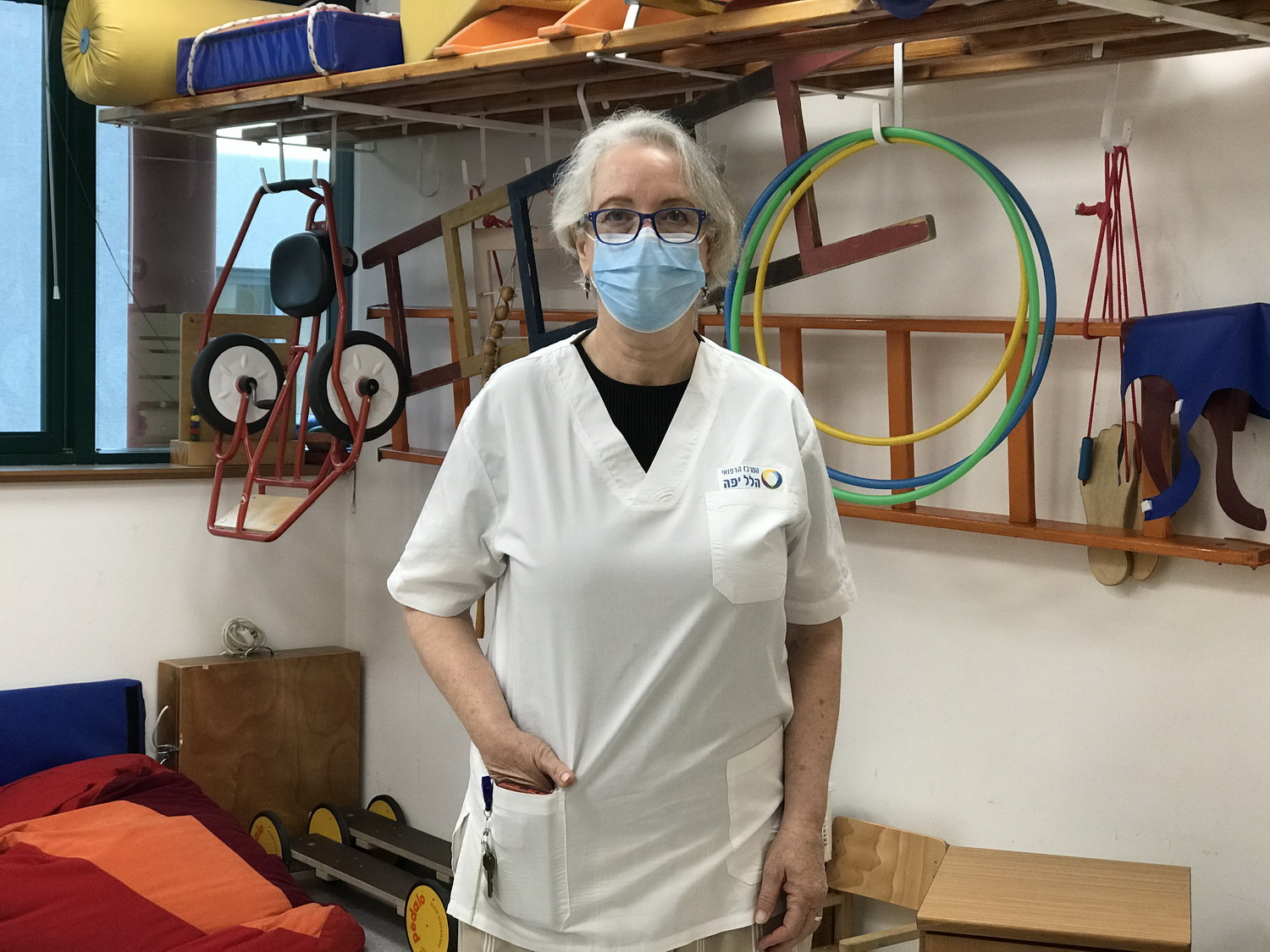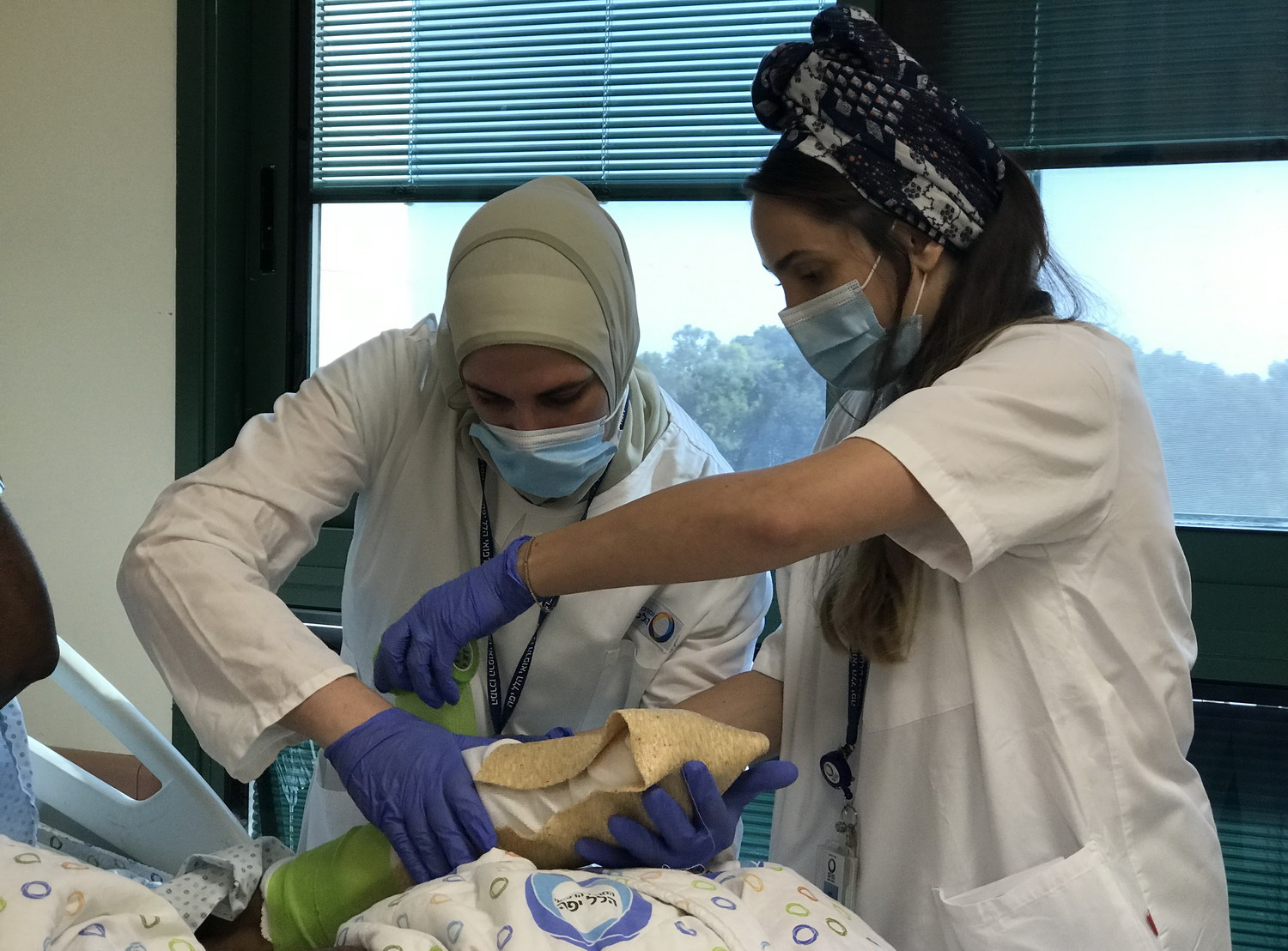Occupational therapy is one of the health professions which combines a large number of fields from the medical, social, and behavioral words, with the goal of encouraging people to participate, be involved, and take part in pursuits that are meaningful to them, in various activities and roles.
“The primary professional practice focuses on treating people who due to illness, injury, or any disability, are unable to take part in various pursuits that are meaningful to them,” explains Ronit Gilat, Director of the Occupational Therapy Service at the Hillel Yaffe Medical Center. “At the same time, this field offers solutions to the population in general, for both healthy and sick people, throughout their lives – from birth until old age. The service includes diagnostic assessment, evaluation, therapy, and guidance, with the aim of helping the patient improve his physical and cognitive abilities. Occupational therapists possess the knowledge and professional tools to assess the patient’s abilities and limitations, the demands of the activities which he wishes to carry out, and the characteristics of the environment where the activity takes place, and to provide him with broad, individually tailored therapy, for both him and his family,” explains Gilat.

Ronit Gilat, Director of the Occupational Therapy Service at Hillel Yaffe
Brain development and growth among premature babies
From birth onwards, occupational therapy can already help with the brain development of premature babies, who are born early, at low birthweight, or who suffer from disease or a birth defect. “Hillel Yaffe has occupational therapists in the Neonatal Care Department, who work to reduce the stressful events to which the preemie is exposed, contributing to his brain development and growth. The guidance sessions for the parents and staff teach the principles of stimulation suited to preemies and newborns, how to maintain positions which encourage sensory and motor development, encourage early parent-preemie contact, teach how to balance sleep wake cycles, and provide feeding therapy. Likewise, recommendations are given for adapting the home environment when the baby is released,” explains Gilat.
Motor, behavioral, and communication difficulties among children
Occupational therapy is often identified with children with motor, cognitive, sensory, and communication difficulties. The occupational therapists locate the factors delaying the child’s normal development and provide solutions to a range of difficulties which affect their functioning and participation at home, in preschool, in school, and with other children. For example, the service treats children with Developmental Coordination Disorder, difficulties with fine motor control, difficulties performing activities of daily living such as dressing, bathing, feeding, or participation in play and leisure activities, learning difficulties, attention and concentration difficulties, children with ASD, and various syndromes. “In the hospital, we brought this service to the Pediatrics Department too, so as to prevent the negative consequences of the hospitalized child’s sickness on his normal development as much as possible, or at least minimize the harm. A child with motor injury to his upper extremity, for example, is given therapy which is individually tailored for his situation, as well as parental guidance, so as to help him return to normal motor activity. Likewise, orthopedic braces are suited as needed, there is diagnosis of developmental delay, and more,” adds Gilat.
Improving cognitive and functional capabilities after a stroke
The occupational therapists play an integral part in the healing of patients with neurological problems. They can already identify and locate a decrease in functioning, cognitive, motor, and sensory capabilities, during hospitalization. Among patients who have had a stroke, for example, it is important to identify and locate as quickly as possible whether they have a reduction in cognitive abilities and immediately begin individually tailored therapy so as to reduce cognitive deterioration and thus preserve and improve their quality of life. In practice, the occupational therapists focus on improving the patient’s daily functioning, such as bathing, dressing, self-feeding, and toileting. In addition, the occupational therapists create a plan for hospital discharge including a list of adaptations and guidance for after discharge, as well as recommendations for continued treatment within the community as needed.
Rehabilitation for extremity injuries
In the orthopedic field, too, occupational therapists play a no less important role. They specialize in preparing orthopedic braces after surgery, injury, or amputations of upper and lower limbs. In addition, passive and active movements of the joints are carried out to prevent shortening of tendons and muscle atrophy, and to enable optimal motor functioning after recovery. Before discharge, recommendations are given for adapting the home environment and preventing falls.

Occupational therapy at Hillel Yaffe – In the inpatient departments too
“A healthy soul in a healthy body”
Occupational therapy makes a big difference to patients suffering from various psychiatric disorders. The occupational therapists help with the rehabilitation of the patient’s ability to function independently and participate in important activities in his life, as well as enabling his welfare and sense of efficacy. The service at the hospital also provides a range of therapeutic groups, and there is direct contact with community bodies to preserve the therapeutic continuum after discharge from hospital.
To summarize, Gilat notes: “Occupational therapy is a broad service which is expressed in a wide range of areas. It helps patients of all ages with functioning, cognitive, and other disorders, and plays a no less important part from the conventional medical view in the rehabilitation and recovery process of the patients.”












.jpg?BannerID=39)

